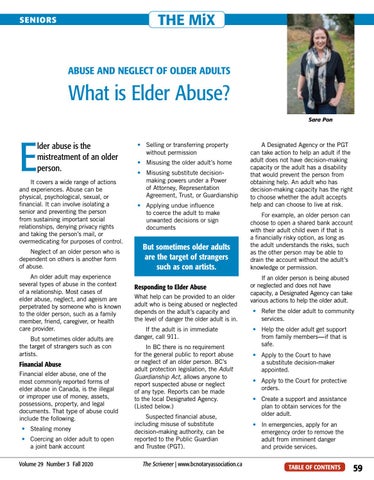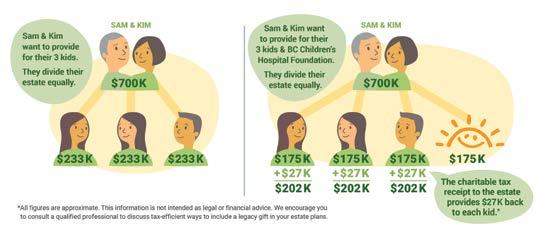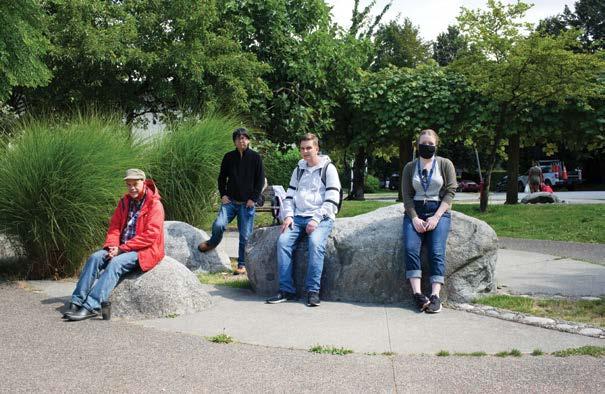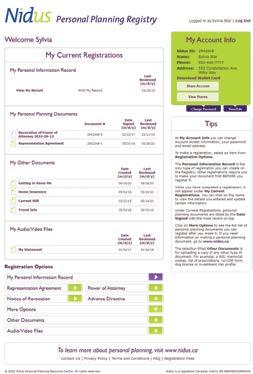THE MiX
SENIORS
ABUSE AND NEGLECT OF OLDER ADULTS
What is Elder Abuse? Sara Pon
E
lder abuse is the mistreatment of an older person.
It covers a wide range of actions and experiences. Abuse can be physical, psychological, sexual, or financial. It can involve isolating a senior and preventing the person from sustaining important social relationships, denying privacy rights and taking the person’s mail, or overmedicating for purposes of control. Neglect of an older person who is dependent on others is another form of abuse. An older adult may experience several types of abuse in the context of a relationship. Most cases of elder abuse, neglect, and ageism are perpetrated by someone who is known to the older person, such as a family member, friend, caregiver, or health care provider. But sometimes older adults are the target of strangers such as con artists.
Financial Abuse Financial elder abuse, one of the most commonly reported forms of elder abuse in Canada, is the illegal or improper use of money, assets, possessions, property, and legal documents. That type of abuse could include the following. • Stealing money • Coercing an older adult to open a joint bank account Volume 29 Number 3 Fall 2020
• Selling or transferring property without permission • Misusing the older adult’s home • Misusing substitute decisionmaking powers under a Power of Attorney, Representation Agreement, Trust, or Guardianship • Applying undue influence to coerce the adult to make unwanted decisions or sign documents
But sometimes older adults are the target of strangers such as con artists. Responding to Elder Abuse What help can be provided to an older adult who is being abused or neglected depends on the adult’s capacity and the level of danger the older adult is in. If the adult is in immediate danger, call 911. In BC there is no requirement for the general public to report abuse or neglect of an older person. BC’s adult protection legislation, the Adult Guardianship Act, allows anyone to report suspected abuse or neglect of any type. Reports can be made to the local Designated Agency. (Listed below.) Suspected financial abuse, including misuse of substitute decision-making authority, can be reported to the Public Guardian and Trustee (PGT). The Scrivener | www.bcnotaryassociation.ca
A Designated Agency or the PGT can take action to help an adult if the adult does not have decision-making capacity or the adult has a disability that would prevent the person from obtaining help. An adult who has decision-making capacity has the right to choose whether the adult accepts help and can choose to live at risk. For example, an older person can choose to open a shared bank account with their adult child even if that is a financially risky option, as long as the adult understands the risks, such as the other person may be able to drain the account without the adult’s knowledge or permission. If an older person is being abused or neglected and does not have capacity, a Designated Agency can take various actions to help the older adult. • Refer the older adult to community services. • Help the older adult get support from family members—if that is safe. • Apply to the Court to have a substitute decision-maker appointed. • Apply to the Court for protective orders. • Create a support and assistance plan to obtain services for the older adult. • In emergencies, apply for an emergency order to remove the adult from imminent danger and provide services. TABLE OF CONTENTS
59

























